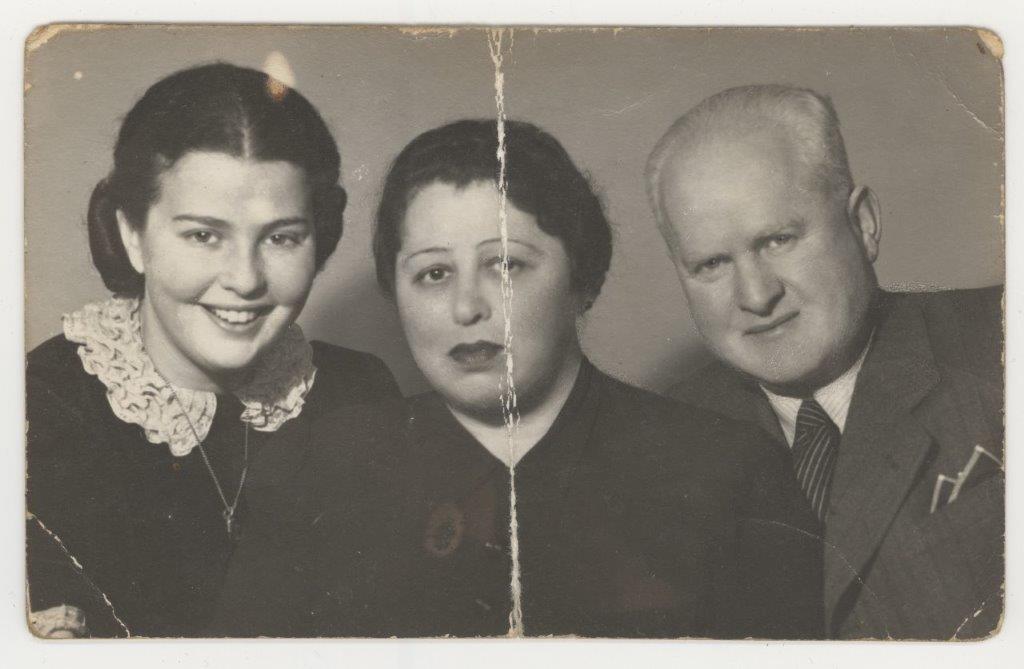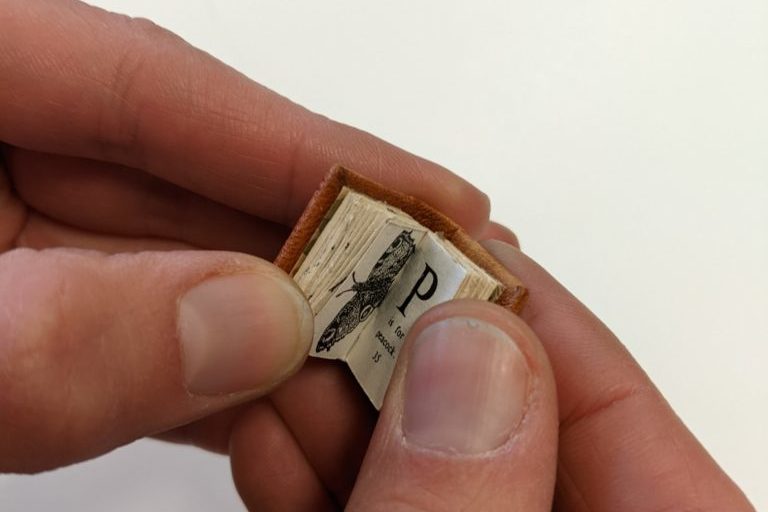Montreal Holocaust survivor Lilly Toth was a very private person, who lived quietly alone until her passing in May 2021 at age 95.
Few would have guessed that her modest apartment housed an extraordinary collection: 1,119 miniature books. By definition, these marvels of printing and binding are less than 3 inches in length and width. Some of Toth’s were far smaller, the size of a fingernail.
Eddie Paul of the Jewish Public Library (JPL) was astounded when a couple of years before her death Toth invited him to her home and told him she was donating the entire collection to the JPL.
“It was mind-blowing,” said Paul, senior director of library and learning services. “The books were displayed on custom-built shelving around her bedroom. She clearly loved them for their beauty as much as their curiosity. We are overjoyed to receive them.”
Paul, an expert in rare books, said the material value of these miniatures is hard to assess. What is priceless is to find so many and such variety in the possession of one unassuming devotee.
While the JPL is still cataloguing them, Paul said the oldest appear to date back to the mid-19th century, while some are quite recent. Many had very limited editions. In several languages, the books were published in the United States and Europe with a significant number from Toth’s native Hungary, which has a reputation for such production.
Among them are the complete works of Shakespeare and other famous literature, devotionals both Jewish and Christian, children’s stories, books of art, musical scores, recipes, and Hungarian sports memorabilia.
Judaica include a velvet-encased Birkat ha-Mazon, the Book of Psalms, the megillah of Esther and an English-Yiddish dictionary squeezing in 1,200 words.
There’s a Hungarian haggadah illustrated with woodcuts and bound in a golden cover embossed with a metallic blue title. A leather-bound volume produced for the Hungarian Jewish Museum in Budapest is known to be found in only two other libraries today: Yeshiva University in New York and the National Library of Israel.
The very smallest is Christian—the Lord’s Prayer in six languages—less than a quarter-inch high. Published to raise funds to rebuild the Gutenberg Museum after the war, this “ultra-microminiature” is in its original plexiglass case that doubles as a magnifying glass.
One book, an artist’s creation from the 1990s, is fashioned into a cameo brooch.
It is not clear when Toth began collecting or where she sourced the books, although she must have started after she immigrated to Montreal in 1957 and seems to have continued almost to the end of her life. She kept a handwritten inventory and added to a few personalized bookplates.
As for the why, other than her evident appreciation of their esthetic merit, Paul surmises that Toth’s narrow escape from being murdered during the war may explain her unusual bibliophilia.
Historically, Jews have cherished books, for spiritual and educational sustenance, as well as their portability, he points out.
Miniatures, which go back to the earliest days of printing, were intended to be functional: they were easily hidden and could be consulted discreetly.
Although little is generally known about Toth’s life after she settled here, she was very open about her Holocaust experience. She recorded testimonies with the U.S. Holocaust Memorial Museum and the Montreal Holocaust Museum (MHM).
Toth née Gluck was born in Budapest in 1925, the only child of well-off parents and a self-described spoiled brat. In March 1944, her father was taken away and her mother was deported in October. She would only learn of their deaths after the war.

Teenaged Lilly hid with a friend’s family until they were denounced in December. The fascist Arrow Cross collaborators marched them and other Jews to the banks of the Danube, where they were shot. Lilly and her friend were tied together; the other girl was killed instantly, while Lilly was wounded in the arm.
She played dead until it was safe to swim, in freezing water, to shore and get cared for at a Jewish hospital. She found refuge in a Swiss safe house until liberation in January 1945.
Paul has few details about her life in Montreal, whether she worked or about her apparent marriage. It is sure that she had no children or anyone else to leave her beloved miniatures to.
Her brief death notice in the Montreal Gazette named no survivors or friends but described her as “a kind soul who touched many lives. She was strong, exceptionally funny, and loved by many.”
On May 15, the first anniversary of Toth’s passing, the JPL with the MHM will hold a public launch of the collection, which will be on exhibit in the Gelber Centre.







